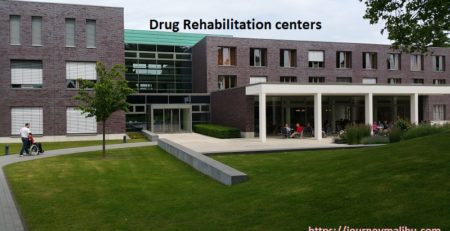4 Tips to Find the Right Alcohol Treatment Center in Los Angeles
Finding the good alcohol treatment centers in Los Angeles is too intriguing for many to be happy with the search results. It’s not because there’re hundreds, if not thousands of alcohol rehabs or addiction centers but because most of them use the finest of their advertising skills to draw the attention of patients whose families would do anything to make sure their near ones get what’s best of this special world.
So, how can you meet the one that suits your demands and favor yourself by not ending up at a substandard facility that is good at only making promises but not so much when it comes to standing up to them? The answer is not going to be like a one-word clue or a brief note that contains just a name. This whole article is meant to help you find the right one among the many alcohol treatment centers in Los Angeles.
Tips to Find an Alcohol Treatment Center in LA
Keep this in mind before digging any deep into your search.
You’re looking for an alcohol rehab facility, not a clothing store that meets your fashion fantasies. So, be realistic and don’t fall for something of a semblance. Following are the considerations you must make.
- Looking for Accreditation
- Location
- Cost and Financing options
- Treatment Procedures
Look for an Accreditation
When an alcohol addiction treatment center says it has accreditation, the statement testifies the facility’s amenability and successful completion of standard evaluations from recognized authorities that provide approvals to operate as a trustworthy center.
Accreditation can be both a lengthy and expensive formal process undertaken by the accrediting organizationsthat thoroughly scrutinizethe staff, client care options, policies, operational methods and safety programs of the facility that has applied.
Here’s the list of the available accrediting bodies in America. It means you may see an accreditation issued by any of these organizations.
- COA or Council on Accreditation:This particular body is responsible for the highest number of accreditations, which is nearly 94% of all alcohol treatment centers.
- NCQA or National Committee for Quality Assurance: It’s another respected authority that has issued accreditations to 93% of all facilities across the United States.
- Joint Commission: It has allowed an accreditation for81% of rehabs.
- CARF or Commission on Accreditation of Rehab Facilities: This organization has issued accreditations to 73% of alcohol rehab centers.
Now that you know which accreditations you may come across, you need to know what you can expect when you opt in for an accredited program.
- Only trained staff will take care of you.
- All kinds of privacies and policies are as per the accrediting body.
- Insurance companies regard accredited facilities with great value when it comes to insurance reimbursement.
- Having passed a comprehensive and evaluative vetting process, accredited centers become committed to ensuring proper therapeutic arrangements and environment that helps patients with quick and safe recovery.
By far, having an accreditation, a facility demonstrates the appropriate stamp of approval and quality in this line of work.
Identify the Most Suitable Location
Once you’ve got information about an accredited alcohol rehab; you have the least of concerns about the safety and wellbeing. But, how convenient can it be for you to stay at a facility while your family will need much long to reach you when you need them desperately? You’ll agree it’s not really cool.
No disrespect to any particular alcohol treatment facility! Your desired center should be located at a place that is very much reachable. The name Los Angeles applies to a large area, even more extended than you already know, and commuting experiences may not be equally pleasing in all corners. So, choose wisely!
Know About the Costs and Financing Options
Good things come at good costs! Acknowledge it or not, it’s the case when you look for alcohol treatment centers Los Angeles.It’s a BIG concern for many! The accredited programs may seem more expensive than the ones that are non-accredited. But, relax!Being enrolled in an accredited program increases your likelihood of getting financial supports from the relevant authorities.
Some addiction centers have referral programs that are designed to bring them more patients. You need to stay focused; no matter how attractive a specific program seems.
Good news!!! There’re financing options offered by the Federal Government under certain conditions. For inevitable reasons, you may find some of those conditions hard to meet. But, your lawful efforts to meet those criteria will be worth it!
Learn the Common Approaches to Alcohol Addiction Treatment
Treatment facilities adopt different approaches to treat patients with alcohol addiction. Most centers offer the following services which are fundamental to alcohol addiction treatment.
- Detoxification (Compulsory)
- Inpatient Treatment (Residential)
- Outpatient Program (General/Standard and Intensive)
- Partial Hospitalization
- Aftercare Services (Compulsory)

Each of the above services has been discussed below to make it easy for a patient to determine which one among inpatient, outpatient, and partial hospitalization services he/she needs for his/her particular level of addiction.
Detoxification and Withdrawal
All alcohol treatment centers Los Angeles include this as their very first approach to one’s alcohol addiction treatment. In practice, the approaches and tools usedin the detox procedure are almost the same at any center, but there’re still few things you need to check how they assist the patient to deal with the different symptoms that occur right after the procedure.
Here’re a number of physical and physiological symptoms that you need to be aware of, so that you can ask a potential facility some relevant questions about them.
Physical issues include fever, headache, irregular heartbeat, nausea, seizures, shakiness, sweating, etc. physiological issues include anxiety, agitation, depression, hallucinations, insomnia, mood swings, nightmare, etc.
Inpatient Treatment
This highly controlled treatment type comprises different types of assessment, 24/7 routine care, and a live-in facility. A patient who opts in for such a program needs to stay at the facility for at least a month or even several months depending on the severity of the alcoholism. In some cases, inpatient treatments are the most expensive of all other options.
Many alcohol treatment centers Los Angeles offer inpatient facilities in different terms like short, long, and partial hospitalization.
- Short-Term Residential often involves a hospital setting wherein therapies are extensive and medical attention is offered to qualified patients.
- Long-Term Residential involves a therapeutic facility (often operated and owned by a community)wherein extensive therapies and medical careare available to qualified patients.
- Partial Hospitalization includes a hospital setting where patients need not stay overnight but are required to come under nearly full-time commitment (services and treatments) throughout several weeks.
Outpatient Treatment
Outpatient settings offer several benefits which make them attractive to many people who don’t want to sacrifice their normal life. You can remain at home and receive the required care at a convenient schedule. You can continue to carry out most of your daily works. There’re supportive groups of people around you.

The best Outpatient Treatment in Los Angeles
The only serious drawback of this way is that you don’t get the settings involving so much caring and protective measures as you would in an inpatient facility when it comes to the chances for you to start drinking again. You need to have some control over your desires since you’re living in an environment that may not be completely free of alcohol.
Outpatient Programs typically focus on different types of therapies to enable patients to attain recovery as steadily possible and then sobriety. Although the arrangements of therapies may differ depending on which of the alcohol treatment centers Los Angeles you choose, the following options are common.
- Cognitive Behavioral Therapy helps you identify specific behaviors or thoughts that might lead you to further uses of alcohol or drug.
- Contingency Management gives you positive reinforcement, so you can find it easy to abstain from being alcoholic. Sometimes, you may be given a movie ticket or a gift card. Even, you may be invited to therapy sessions.
- Motivational Interviewing allows you to recognize and deal with any confusion or hesitation or ambivalence that may hinder the success of the treatment.
- Matrix Model is the combination of one or more of the above therapies like contingency management, cognitive behavioral therapy, plus family therapy. The goal is to aid patients in their way to abstinence.
- Multidimensional Family Therapyis ideal for adolescents and focuses on a set of actions tailored to facilitate family functioning.
Other parts of the supports may include different educational training, skill development programs, psychological and physical health care, etc.
Partial Hospitalization
Partial hospitalization typically includes intensive programming for individuals to manage the different symptoms and issues of alcoholism, deal with relapse, and acquire new real-life skills for quick and sustainable recovery. If you’re struggling with alcoholism, you might have experienced alcohol cravings, alcohol abuse, and withdrawal symptoms.

Partial hospitalization typically includes intensive programming
About one tenth of total Americans who are alcoholic are found to be looking for help in Los Angeles, and those people have both a mental disorder along with their addiction which ultimately leads to co-occurring disorders requiring an intensive level of care. A partial hospitalization facilityproves to be valuable with intensive therapies,professional counseling, personal skill development programs, support group meetings, relevant clinical services, and others.
Hospitalization sessions aren’t always the same as there’re differences in frequency and intensity from patient to patient, consideringthe severity of symptoms and circumstances of the patients.Other aspects of partial hospitalization include supervision of one’s health and wellbeing, prescribed uses of medications, and all other clinical approaches required fora successful long-term withdrawal.
These programs are also ideal for those who need not seek 24-hour care. Being highly reviewed and structured, these services are reliable and often more convenient than other choices around.
Aftercare Services
Remember one thing that your recovery doesn’t mean that you need no further care.Recovery is much demanding as being alcoholic, and the process is ongoing with continuous re-commitment so that you can enjoy long-term sobriety while working on personal growth.
So, an ideal addiction treatment center needs to include a complete lineup of continuing care services like process groups, weekly relapse prevention and family programming.Some well-rounded programs appoint an alumni coordinator whose job is to help you with the transition that have once out of your residential care.
Finally, you’ve gathered the right knowledge about identifying and shortlisting the most authentic alcohol treatment centers Los Angeles. All you should have is a little patience and the zeal to place yourself at a great treatment center that knows what and how fairly to deal with things.





Comment (1)
Cialis Y Otros Medicamentos Licensed Pharmacies In Los Algodones cialis 5 mg best price usa Buy Tetracycline Levitra Femme Prezzo Levitra In Farmacia